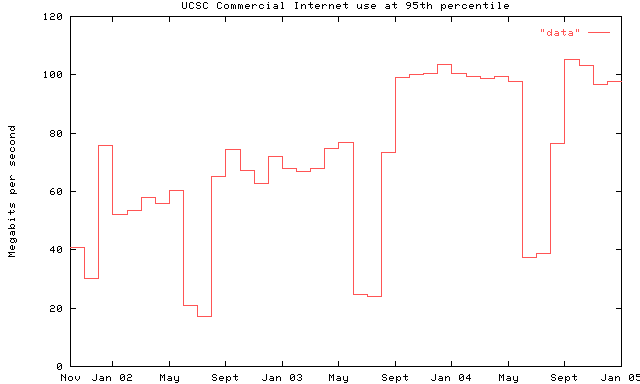
UCSC's ISP comittment is 100 Mb/s. We are liable for a ready to serve charge to the extent that we don't meet our purchase comittment. We received our first such charge for the month of December amounting to $215 (2 percent of $9404). The rules do not permit us to set a comittment lower than last year's usage. There has been a substantial shift in use pattern away from "commercial" service to free or fixed cost services. The decline in commercial demand is enough that the packeteer setting is higher than the demand. The Packeteer protects us against an eventuality that now is rare. We can think of two reasons for this: 1. CENIC has arranged for free exchange of traffic with an increasing number of peer networks. Last year we disposed of 25 percent of our traffic in cost-free peer exchanges. This year, cost-free peering dispatches half our traffic. 2. Users seek good performance. They gravitate toward peer-to-peer file networks that use Internet-2. While that doesn't help them fend off the 2-gig limit, it does improve performance a lot. That steers traffic toward the low cost path. The growth of cost-free peering last year as 100 percent. Much of this has been at the expense (bad pun) of commercial service. We cannot rely on these trends to remain stable. The traffic could shift back. The budget estimate for Resnet traffic was $150,000 for the current FY. The year is half over and if current use holds through June, our estimate is that Resnet's share of these charges will be $105,000.